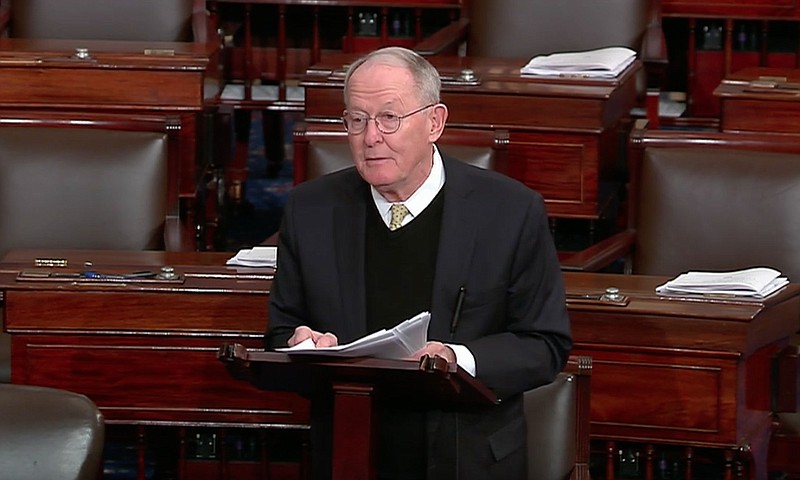Tennessee Republican Lamar Alexander, one of the few pragmatic dealmakers left standing on Capitol Hill, on Monday became the first senator to announce he won't run for re-election in 2020.
Washington is clearly not a fun place these days. But Alexander, 78, has had a long and fruitful run in public service - both in Washington and in Tennessee.
"The people of Tennessee have been very generous, electing me to serve more combined years as governor and senator than anyone else from our state. I am deeply grateful, but now it is time for someone else to have that privilege," the longtime politician said in a statement. "I have gotten up every day thinking that I could help make our state and country a little better, and gone to bed most nights thinking that I have. I will continue to serve with that same spirit during the remaining two years of my term."
He is Tennessee politics. First elected governor in 1978, after a campaign in which he walked more than 1,000 miles across Tennessee in a red-and-black-checked flannel shirt. After serving two terms, he became the president of the University of Tennessee and was later chosen by President George H.W. Bush to be his secretary of education.
He ran unsuccessfully for president twice. Once in 1996 and again in 2000. When Sen. Fred Thompson announced he wouldn't run for re-election to the Senate in 2002, Alexander won handily and won two more six-year terms after that.
Today, he is the chairman of the Senate Health, Education, Labor and Pensions Committee. He worked with Sen. Patty Murray, D-Washington, on a bipartisan plan to stabilize the Affordable Care Act, but the effort faded as the GOP and the White House unsuccessfully tried to push through their own replacement plan in 2017.
He has served us long and well. And he may well be ushering out the last era of real congressional governing.
Now what?
Tennessee's game of musical chairs for U.S. Senate seats continues.
The betting has already opened on who will line up to play - both on the Democratic side and on the Republican side.
Gov. Bill Haslam, a Republican, hasn't ruled it out: "I will give it serious consideration and will have a better answer to your question in coming days," he said.
Chattanooga Mayor Andy Berke, who like Haslam had weighed running for the Senate seat that Republican Bob Corker left open this year, also left the door open. After honoring Alexander's "long commitment of service to the people of Tennessee," Berke added in his statement: "There are many issues important to me that affect not just Chattanoogans, but Tennesseans as a whole. I am always looking for opportunities to focus on the issues that will help improve the quality of life in Tennessee."
Other Republican names in speculation include soon-to-be former U.S. Rep. Diane Black of Gallatin, who lost a GOP primary bid for governor; U.S. Rep.-elect Mark Green, a former state senator and practicing physician who just raised a ruckus by insinuating that vaccines are linked to autism. (He has since partially walked back those comments.) Another name already mentioned is that of U.S. Ambassador to Japan Bill Hagerty, Haslam's former state commissioner of economic and community development.
But let your imagination run. What about the GOP's Beth Harwell, speaker of the Tennessee House of Representatives for about two more minutes after she lost her primary bid for governor? Does Democrat Phil Bredesen still have a thirst for the job despite his thumping by Marsha Blackburn, who took Corker's seat?
How about former U.S. Rep. Zach Wamp? Or Weston Wamp, who twice sought to unseat Rep. Chuck Fleischmann from his 3rd District seat?
For that matter, what about Fleischmann?
We wonder about U.S. Rep. Jim Cooper, D-Nashville. He represents Tennessee's 5th District, and used to represent the 4th District until gerrymandering became Tennessee's favorite GOP play toy. He is a member of the Dems' Blue Dog Coalition.
Buckle up, Tennessee. It will be a quick two years until we're called on to decide this one.
